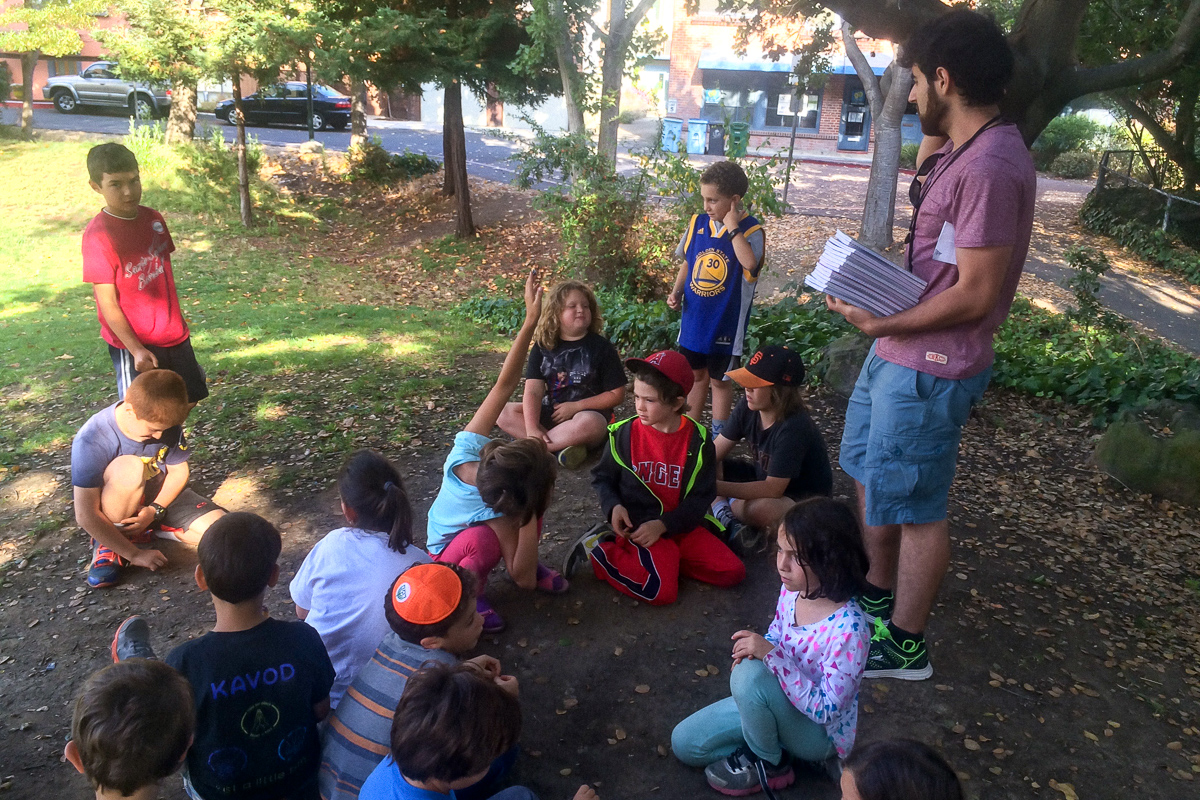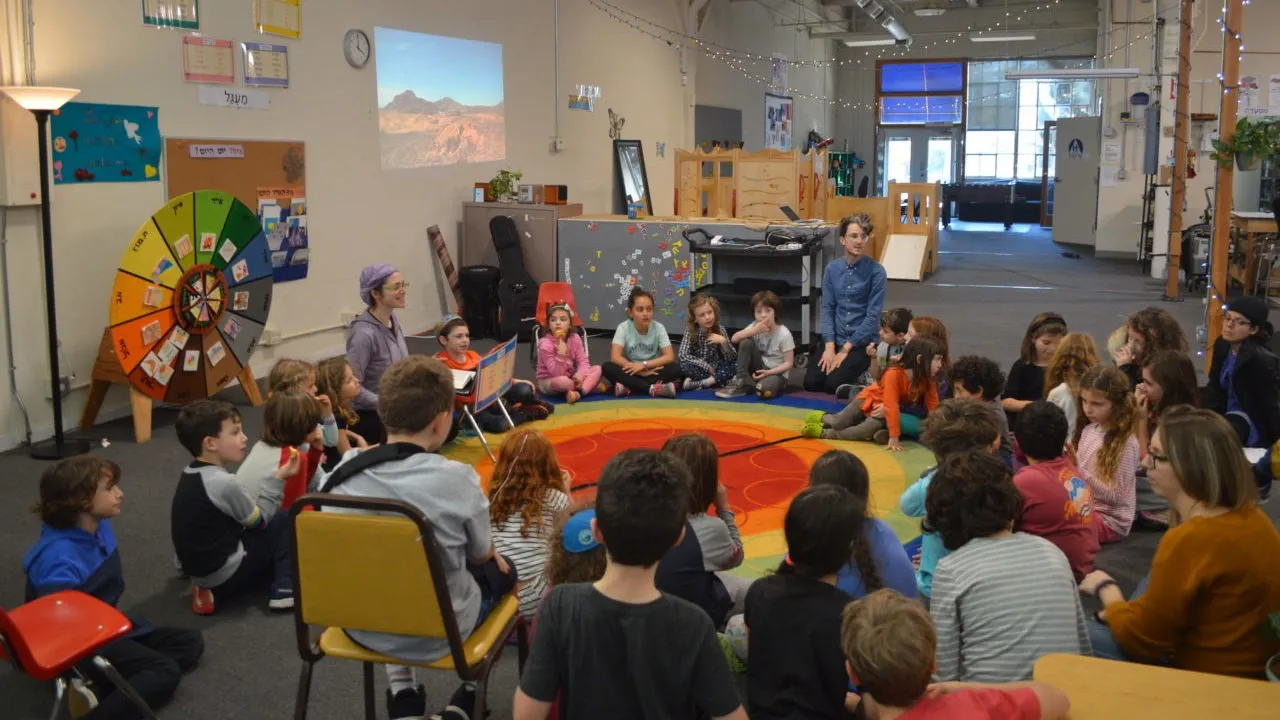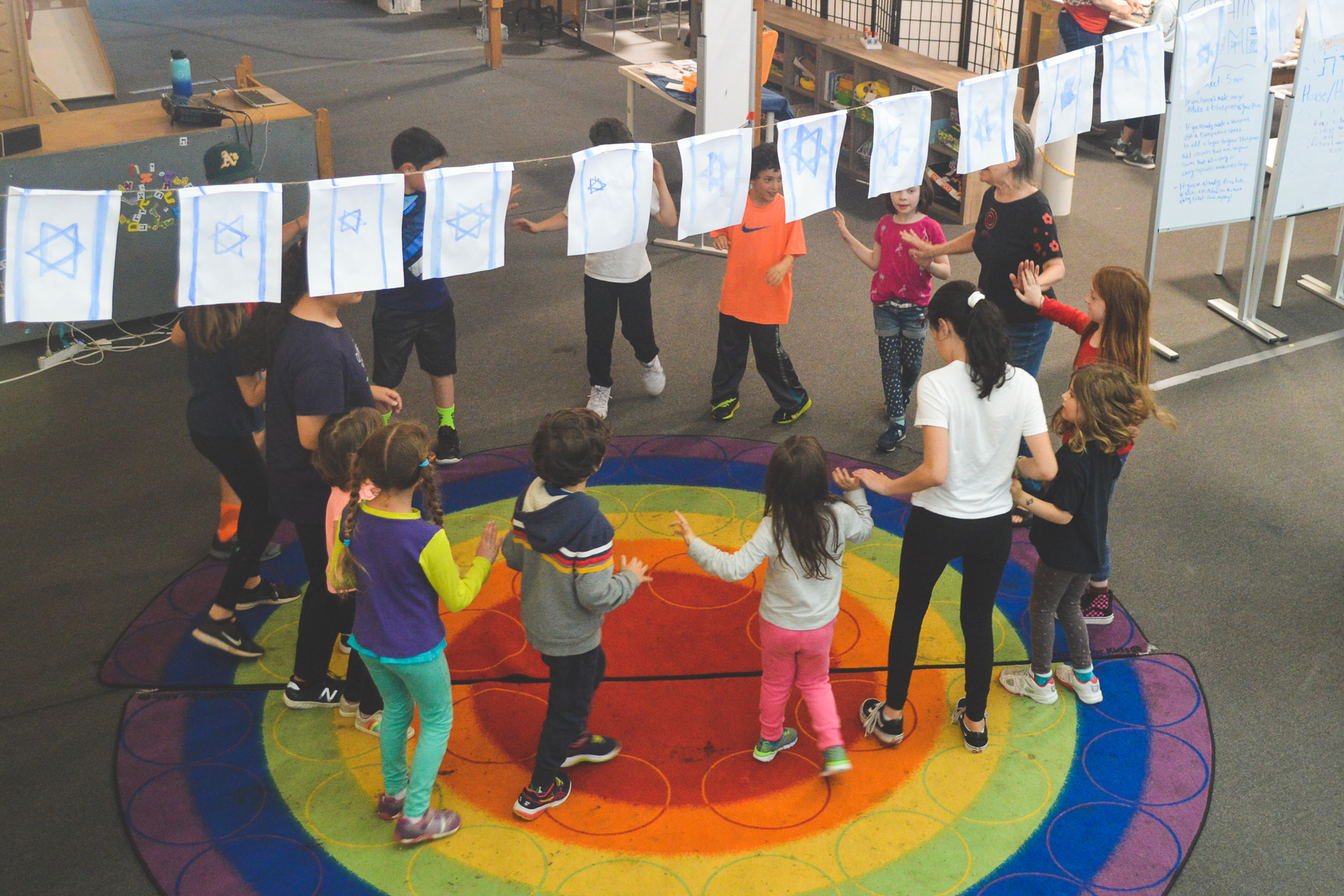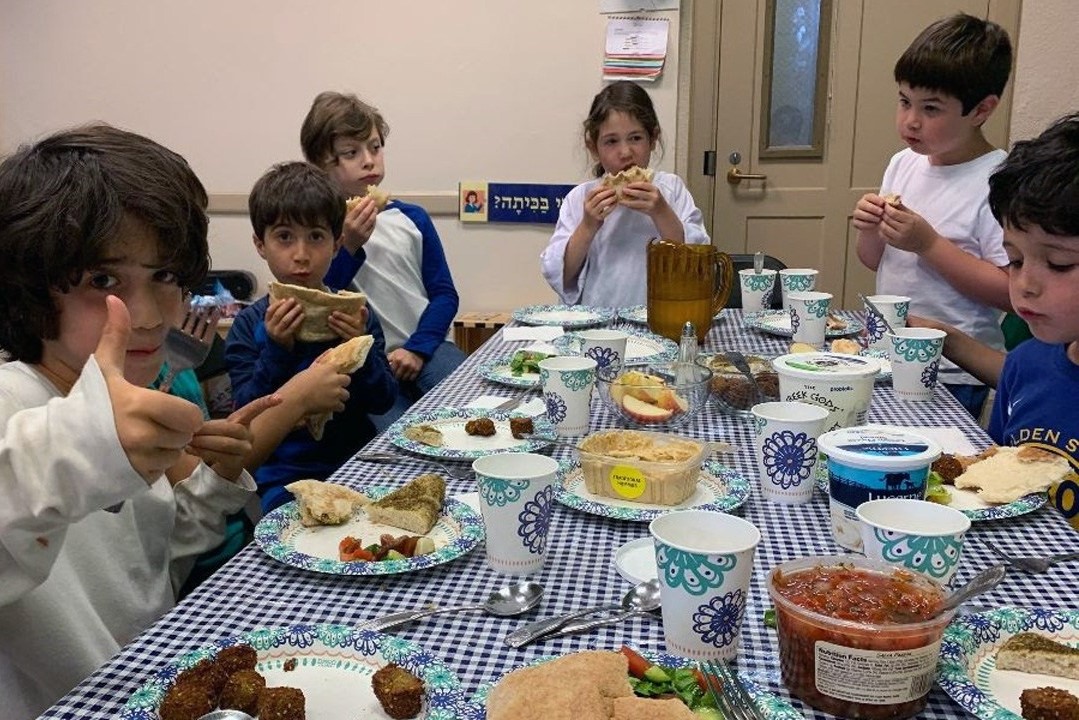By Rabbi Joshua Fenton
It’s Friday at noon. Five Jewish educators sit around a table discussing their recent experiences using Nonviolent Communication (NVC) to defuse tension among students. One educator tells a success story. Another questions the value of the NVC approach, “how do the kids ever learn that there are consequences to actions?”
A third listens to the two and then exclaims, “I didn’t give practicing the training a good enough chance this week, I’ll need to work harder on that next week.” Another educator sits quietly listening and taking notes while the fifth educator, who’s facilitating the conversation, continues to prod the group with questions about their experience experimenting with this approach.
After lunch the meeting transitions into a daily check-in before the kids arrive. In just over an hour 35 children will be dropped off from a variety of public schools in Berkeley to attend the Edah afterschool program, and the five educators sitting around the table make up a big part of the staff. Edah is a Hebrew-immersive, experiential, Jewish educational afterschool program in Berkeley, California and the five educators described above are part of a new initiative called the Jewish Learning Innovation Corps, JLIC, a two year, full time, paid work-study program for early career Jewish educators.
The Jewish Learning Innovation Corps is an attempt to realize a new way of identifying and investing in early career professionals with lots of potential but little formal training. Through professionalizing the experience of teaching in a part-time setting while providing the highest quality training and professional development, the Jewish Learning Innovation Corps hopes to shift the way we think about outreach, teacher training, and the development of new educators and, ultimately, Jewish educational leaders.
In a recent article titled Take A Chance On Me, Rachel Cyrulnik argued that the Jewish community struggles to afford emerging Jewish communal leaders opportunities for growth. She wrote, “And so our Next Gen leaders find themselves in a Catch 22. They need more leadership experience to be ready to lead, but they can’t get it without furnishing credentials that assure employers that they have the leadership experience required to take on new professional challenges.”
A similar critique can be made of Jewish education. There are lots of part time work opportunities for young people looking to make less than a living wage. There are a number of graduate and certificate programs ranging in price and focus, for those able and willing to make that kind of commitment. Teachers can cobble together a number of teaching gigs if full-time employment is required, but are left without health insurance and other benefits. And for the thousands of graduating college seniors looking for full time employment, interested in exploring career paths before deciding on one, Jewish education offers few opportunities.
This was the challenge that led to the creation of the Jewish Learning Innovation Corps. JLIC was designed to give recent college graduates an opportunity to learn skills often available only to graduate students who commit to a degree program, to practice those skills, and refine them in collaboration with the other fellows and their mentor. The JLIC curriculum provides fellows with intensive training from experts in some of the most exciting and innovative practices in Jewish education, including Philosophical Inquiry, Project Based Learning, Nonviolent Communication, and Hebrew Language Immersion. The fellows then have the opportunity to practice and hone these skills in the classroom, developing and implementing lesson plans, discussing outcomes with their cohort, and incorporating what they have learned into future lessons. This iterative and collaborative process affords Fellows the benefit of an academic and practical experience that allows them to reflect upon what they have learned and refine their new skills. In addition, each JLIC fellow has a particular area of interest and is matched with an experienced professional mentor to guide them in realizing their own professional goals.
We know students learn best through doing. JLIC provides millenials a pathway into Jewish education by introducing early career Jewish educators to a field that is professionalized, characterized by opportunity, and designed to meet the needs of these young educators as they navigate their entry into the working world.
For more information and to apply to the Jewish Learning Innovation Corps visit www.edahcommunity.org/#!employment/tulm1
Rabbi Joshua Fenton is Executive Director of Studio 70 and Edah.
Edah and the Jewish Learning Innovation Corps are supported in part by the Covenant Foundation and the Legacy Heritage Foundation.
Originally published on March 22, 2016 by eJewish Philanthropy





